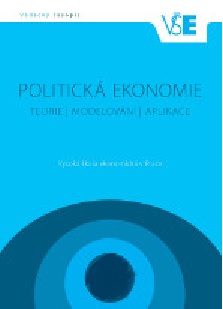Stimuluje spotřebu v situaci nulové nominální úrokové míry zvýšení inflačních očekávání?
Does an Increase in Inflation Expectations Stimulate Consumption at the Zero Lower Bound?
Author(s): Pavel PotužákSubject(s): Politics / Political Sciences, Social Sciences, Economy
Published by: Vysoká škola ekonomická v Praze
Keywords: inflation expectations; zero lower bound; real interest rate; optimum consumption path
Summary/Abstract: In an effort to stimulate aggregate demand at the zero lower bound, economists and central bankers have focused on inflation expectations. The key argument is that an increase in inflation expectations may reduce the real interest rate and thus encourage consumption spending. This article examines not only the traditional channels of the fall in the interest rate connected to the relative importance of the substitution and income effects, but it also investigates the impact on the perceived real future labour income. It is shown that if people do not adjust their expectations about future nominal labour income when inflation their expectations rise, the effect on present consumption can be negative, and the aggregate demand might be reduced rather than increased. A graphical and mathematical analysis in the paper exposes the relative importance of traditional channels and this new channel. It is shown that the traditional perspective is only a special case of a more general approach.
Journal: Politická ekonomie
- Issue Year: 66/2018
- Issue No: 6
- Page Range: 751-775
- Page Count: 25
- Language: Czech

